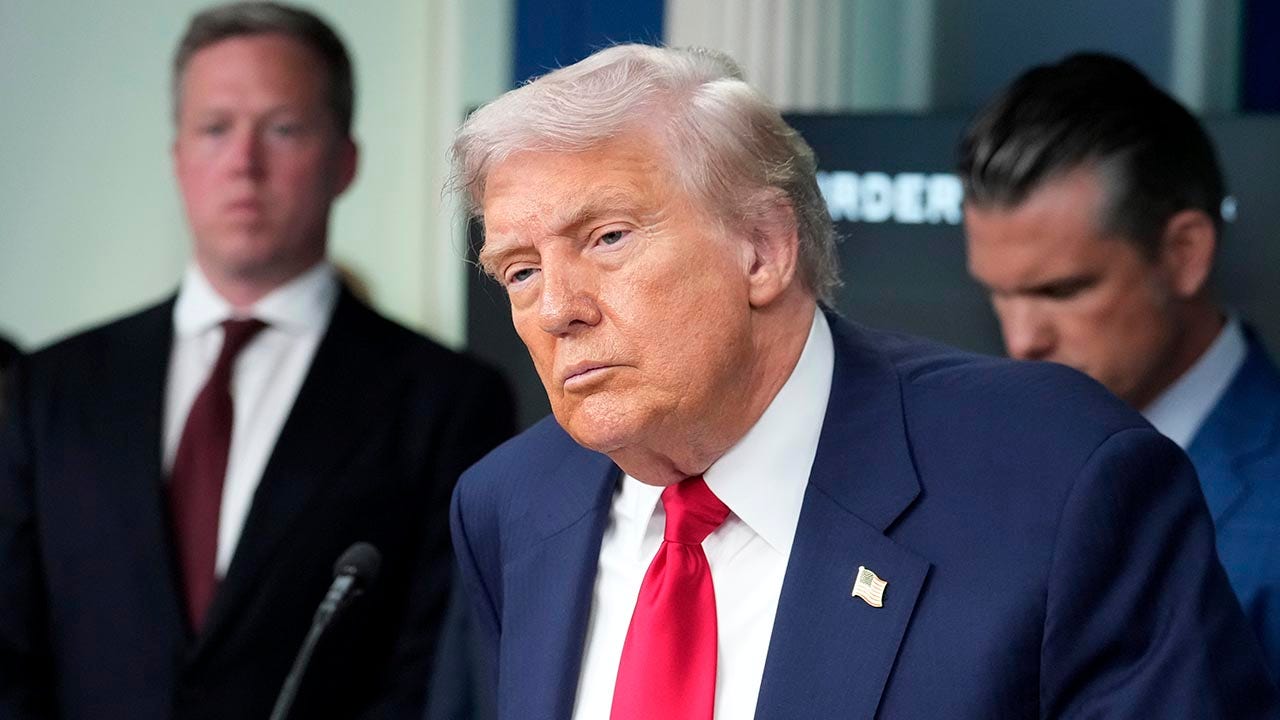So says the Times of Israel, based on reports coming from renewed negotiations for exchanging hostages for a pause in fighting. Israel and the US have returned to talks in Qatar and with other regional powers to find a way to end the crisis in Gaza and — most importantly — to ensure that it’s the last such existential crisis that Israel has to face. Benjamin Netanyahu has made that demand very clear, especially in regard to Gaza, insisting that he will not stop the war until a return to “Hamastan” is impossible.
That demand, as well as technical definitions, continues to hold up talks over the hostages. Netanyahu’s government is not inclined to let Hamas off the hook for at least the tenth time in 19 years, even if it gets the twenty living hostages back to Israel. However, Donald Trump wants to resolve the regional conflicts on his terms, and reportedly offered a guarantee to Hamas as a means of getting a deal in place:
While the US plans to leave a window in the text of the Gaza truce that would technically enable Israel to resume the war at the conclusion of the 60-day ceasefire under discussion, the Trump administration has told mediators that it does not intend to allow Jerusalem to do so, an Arab diplomat and a source familiar with the matter tell The Times of Israel.
Despite opposing an Israeli resumption of the war, the US does not want that possibility ruled out in the text of the ceasefire proposal in order to hold Hamas’s feet to the fire and make sure that they negotiate in good faith, the two sources say.
Moreover, explicitly instituting a permanent ceasefire in the text of the proposal would lead to the collapse of Prime Minister Benjamin Netanyahu’s government, the source familiar with the negotiations says, indicating that the mediators are trying to avoid such a scenario in order to keep the Israeli premier on board.
Has Trump tired of the Gaza operation? He has publicly voiced frustration with it in the past, but has always backed Netanyahu’s determination to put an end to Hamastan. He clearly wants a win on the hostages, however, and probably believes that Netanyahu needs one as well. Trump’s team met with hostage families today, who expressed their appreciation for his efforts:
“We heard for an additional time about the Trump administration’s commitment to returning all the hostages. They won’t stop until all 50 hostages return home. These moments are critical, and we trust the Trump administration to bring everyone with a complete agreement,” the statement reads.
The question may be whether the law of diminishing returns applies now to the IDF operations in Gaza. Most of Hamas’ upper levels have been killed, including all of its top leadership in the field, and its infrastructure has been heavily damaged if not rendered largely useless for anything other than guerrilla-warfare cover. It still has substantial numbers of terrorists in the field, but the IDF is presently reducing that footprint around Beit Hanoun in northern Gaza at the moment.
The IDF’s chief today argued that a deal would only be possible because of IDF domination in Gaza over the last few months. That has forced Hamas into serious concessions, even if those concessions may not equate to an end to Hamastan, and he pushed back against its critics:
Speaking at a National Security College course graduation ceremony, IDF Chief of Staff Lt. Gen. Eyal Zamir says the ongoing offensive against Hamas can enable a hostage deal with the terror group.
“During Operation Gideon’s Chariots, we dealt a severe blow to Hamas’s governmental and military capabilities, and thanks to the operational strength we demonstrated, the conditions to advance a deal for the release of hostages have been created,” he says.
“The IDF does not surrender to voices attempting to weaken it. From various directions, the attacks and accusations against the morality of our actions are disgraceful,” Zamir says.
Right now, the obstacle in negotiations appears to be the withdrawal lines in a temporary pause. Hamas has apparently dropped its demands for a full withdrawal — which was always going to be a non-starter — but they are balking at the Israeli proposal that keeps Rafah cut off from Hamas control. The so-called Morag Corridor may get used as a chit, the Jerusalem Post reports:
Whether the IDF keeping troops on the Morag Corridor post-ceasefire is a deal-breaker for Israel at this point is unclear. Some Israeli officials connected to the Prime Minister’s Office have suggested that it might be, whereas Defense Minister Israel Katz has suggested that it is important, but not necessarily a deal-breaker.
What is clear is its strategic and tactical value to the IDF in confronting Gaza security problems.
The Jerusalem Post toured the corridor in April to witness the route the IDF wanted to use for cutting off the deep southern Gaza region of Rafah from the mid-southern Gaza region of Khan Yunis.
Rafah is also close to and/or part of the Philadelphi Corridor, which the IDF will not cede no matter what. They need to hold that to keep Hamas from getting resupplied. Rafah is clearly a key to that strategy, and the Israelis likely want to keep it cut off from Khan Younis in the hope that local clans will take political control in and around the Philadelphi Corridor.
Back to Trump’s guarantee, though. Why offer to restrain Israel if necessary? The main reason could be that the Abraham Accord partners are getting impatient for expanded normalization and an end to the conflict. And that group also includes one key non-member:
Gaza remains the main obstacle to a regional peace deal, Saudi journalist and researcher Abdulaziz AlKhamis told The Jerusalem Post following a conference in the Knesset on Wednesday.
“If [the] Gaza war finishes and there is a peace deal and some stable solution, we will go to the next step with the Americans to do a peace deal for the region,” he said.
But this needs to be a “full solution” that involves the entire region, including Iran and Turkey.
“It is very hard, because some countries have their own interests … [Iran Supreme Leader Ayatollah Ali] Khamenei loves war and wants war to continue, but there is a change. The Iranians suffered from this war … there is a change in the Iranian mentality, and they have come to the table,” AlKhamis said.
That’s great, but all of this is really predicated on ending Hamas’ presence in Gaza. As long as they remain, they will continue to wage war on Israel, and that would pull all of Israel’s allies into such a conflict. Trump grasps that a larger peace would be great for the long-term prospects of the Middle East, but that doesn’t mean we can ignore the short term risks … especially given Hamas’ determination to annihilate Israel no matter what it takes.
Jeff Dunetz of Lidblog and I spoke yesterday about the prospects for a larger peace in the region.
Read the full article here






![Tom Homan is Heading to Portland After Antifa’s Sustained Siege on an ICE Facility [WATCH] Tom Homan is Heading to Portland After Antifa’s Sustained Siege on an ICE Facility [WATCH]](https://www.lifezette.com/wp-content/uploads/2025/06/2025.06.11-09.08-lifezette-6849f05050f20.jpg)





